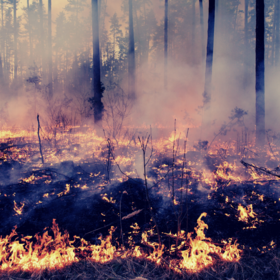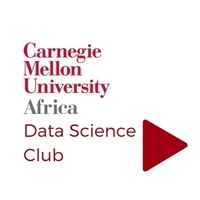
CMU-Africa: Fighting Fire with Data by CMU-Africa Data Science Club
This is a private hackathon open to CMU-Africa participants. If you are a student in CMU-Africa and would like to participate, contact Sheila Mbadi.
Each year, thousands of fires blaze across the African continent. Some are natural occurrences, part of a ‘fire cycle’ that can actually benefit some dryland ecosystems. Many are started intentionally, used to clear land or to prepare fields for planting. And some are wildfires, which can rage over large areas and cause huge amounts of damage. Whatever the cause, fires pour vast amounts of CO2 into the atmosphere, along with smoke that degrades air quality for those living downwind.
Figuring out the dynamics that influence where and when these fires occur can help us to better understand their effects. And predicting how these dynamics will play out in the future, under different climatic conditions, could prove extremely useful. For this challenge, the goal is to do exactly that. We’ve aggregated data on burned areas across ZImbabwe for each month since 2001. You’ll be given the burn area data up to the end of 2013, along with some additional information (such as rainfall, temperature, land cover etc) that extends into the test period. The challenge is to build a model capable of predicting the burned area in different locations over the 2014 to 2016 test period based on only this information.
About CMU-Africa Data Science Club (twitter.com/cmuafricadatasc)

A club of innovative thinkers seeking to delve into the madness that is big data.
This is a private hackathon open to CMU-Africa participants. If you are a student in CMU-Africa and would like to participate, contact Sheila Mbadi.
Teams and collaboration
You may participate in this competition as an individual or in a team of up to four people. When creating a team, the team must have a total submission count less than or equal to the maximum allowable submissions as of the formation date. A team will be allowed the maximum number of submissions for the competition, minus the highest number of submissions among team members at team formation.
Multiple accounts per user are not permitted, and neither is collaboration or membership across multiple teams. Individuals and their submissions originating from multiple accounts will be disqualified.
Code must not be shared privately outside of a team. Any code that is shared, must be made available to all competition participants through the platform. (i.e. on the discussion boards).
Datasets and packages
The solution must use publicly-available, open-source packages only. Your models should not use any of the metadata provided.
You may use only the datasets provided for this competition. Automated machine learning tools such as automl are not permitted.
You may use pretrained models as long as they are openly available to everyone.
The data used in this competition is the sole property of Zindi and the competition host. You may not transmit, duplicate, publish, redistribute or otherwise provide or make available any competition data to any party not participating in the Competition (this includes uploading the data to any public site such as Kaggle or GitHub). You may upload, store and work with the data on any cloud platform such as Google Colab, AWS or similar, as long as 1) the data remains private and 2) doing so does not contravene Zindi’s rules of use.
You must notify Zindi immediately upon learning of any unauthorised transmission of or unauthorised access to the competition data, and work with Zindi to rectify any unauthorised transmission or access.
Your solution must not infringe the rights of any third party.
Submissions and winning
You may make a maximum of 100 submissions per day.
Note that there are Public and Private Leaderboards. The Public Leaderboard excludes approximately 50% of the test dataset. While the competition is open, the Public Leaderboard will rank the submitted solutions by the accuracy score they achieve. Upon close of the competition, the Private Leaderboard, which covers the other 50% of the test dataset, will be made public and will constitute the final ranking for the competition.
You acknowledge and agree that Zindi may, without any obligation to do so, remove or disqualify an individual, team, or account if Zindi believes that such individual, team, or account is in violation of these rules. Entry into this competition constitutes your acceptance of these official competition rules.
Please refer to the FAQs and Terms of Use for additional rules that may apply to this competition. We reserve the right to update these rules at any time.
The error metric for this competition is the Root Mean Squared Error.
You need to predict the proportion of the burned area per area square, with values of 0 to 1.
The IDs take the form of [area ID]_yyyy-mm-dd. There are 3821 area squares each with a unique ID ranging from 0 to 3820.
ID burn_area 0_2014-01-01 0.5624 1_2014-01-01 0.7654 2_2014-01-01 0.1134 3_2014-01-01 0.9751
1st Place: Intel Neural Compute Stick 2
2nd Place: AWS Credits ($50)
3rd Place: AWS Credits ($50)
Competition closes on 31 October 2020 at 15:00 GMT .
Final submissions must be received by 15:00 GMT.
The private leaderboard will be revealed at 15:30 GMT.
We reserve the right to update the contest timeline if necessary.
Join the largest network for
data scientists and AI builders